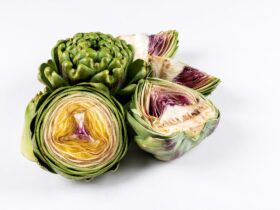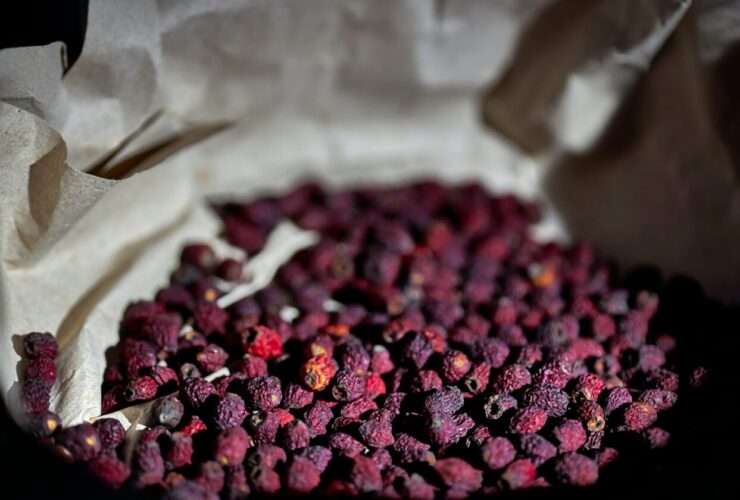Understanding the role of specific foods in supporting health conditions is crucial for optimizing well-being. This article delves into the relationship between cranberry juice and the ketogenic (keto) diet. We’ll explore whether cranberry juice is keto-friendly and how it may impact individuals following this dietary approach.
Cranberry juice, while rich in nutrients and health benefits, poses challenges for those adhering to a keto diet due to its high carbohydrate content. Thus, cranberry juice is not typically considered keto-friendly.
Cranberry juice is renowned for its antioxidant properties and potential health benefits, including urinary tract health and immune support. However, the keto diet emphasizes low carbohydrate intake to induce and maintain a state of ketosis, where the body burns fat for fuel instead of carbohydrates. As such, foods high in carbohydrates, like cranberry juice, may disrupt ketosis and hinder the diet’s effectiveness.
Cranberry juice offers several potential health benefits, mainly supporting urinary tract health and providing essential nutrients. Here are some of the key benefits associated with cranberry juice:
Urinary Tract Health: The most well-known benefit of cranberry juice is its ability to promote urinary tract health. Cranberry juice contains compounds called proanthocyanidins, which prevent bacteria, particularly Escherichia coli (E. coli), from adhering to the walls of the urinary tract, including the bladder. Cranberry juice may help reduce the risk of urinary tract infections (UTIs) and support overall urinary health by inhibiting bacterial adherence.
Antioxidant Properties: Cranberry juice is rich in antioxidants, including flavonoids and phenolic acids, which help neutralize harmful free radicals in the body. These antioxidants have anti-inflammatory properties and may protect against oxidative stress linked to various chronic diseases, including cardiovascular disease and cancer.
Vitamin C Content: Cranberry juice is a good source of vitamin C, also known as ascorbic acid. This powerful antioxidant supports immune function. Adequate vitamin C intake is essential for maintaining a healthy immune system and protecting against infections and illnesses.
Potential Cardiovascular Benefits: Some research suggests that the antioxidants found in cranberry juice may have cardiovascular benefits. These antioxidants may help improve blood circulation, reduce inflammation in the blood vessels, and lower LDL cholesterol (the “bad” cholesterol) levels, thereby reducing the risk of heart disease.
Digestive Health: Drinking cranberry juice may also promote digestive health. Cranberries contain dietary fiber, which supports regular bowel movements and helps prevent constipation. Additionally, cranberry antioxidants’ anti-inflammatory properties may help alleviate symptoms of gastrointestinal disorders, such as inflammatory bowel disease (IBD).
Dental Health: Compounds found in cranberry juice, particularly proanthocyanidins, may help inhibit the adhesion of harmful bacteria, such as Streptococcus mutans, to the teeth, thereby reducing the risk of dental plaque formation and cavities.
It’s important to note that while cranberry juice offers these potential health benefits, it also contains natural sugars and carbohydrates. Therefore, individuals following a low-carb or ketogenic (keto) diet should consume cranberry juice in moderation and consider lower-sugar alternatives, such as unsweetened cranberry juice concentrate or cranberry-flavored water enhancers. As always, it’s advisable to consult with a healthcare professional before making significant changes to your diet or incorporating new foods or beverages for personalized recommendations and advice.
In addition to its potential benefits for urinary tract health, cranberry juice provides essential vitamins and minerals that contribute to overall well-being. A 100g serving of cranberry juice typically contains approximately 7.26g of net carbs, derived primarily from natural sugars present in the fruit.
Despite its carbohydrate content, cranberry juice is a good source of vitamin C, providing a significant portion of the recommended daily intake. Vitamin C is a potent antioxidant that supports immune function and helps protect against oxidative stress. Additionally, cranberry juice contains manganese, an essential trace mineral that plays a role in metabolism, bone health, and antioxidant defense mechanisms.
While cranberry juice offers these nutritional benefits, individuals following a keto diet should be mindful of their carbohydrate intake and consider its potential impact on their daily carb limit. Incorporating small servings of cranberry juice or opting for alternatives with lower carbohydrate content can help individuals maintain their dietary goals while still enjoying the potential health benefits of cranberries.
Incorporating cranberry juice into a keto diet requires careful portion management. Small servings or dilution with water can reduce carbohydrate intake while enjoying cranberries’ flavor and potential health benefits. Additionally, individuals with diabetes or insulin resistance should be cautious due to cranberry juice’s impact on blood sugar levels.
Exploring alternatives becomes essential for individuals seeking to enjoy the flavor of cranberries while maintaining their keto goals. Cranberry-flavored water enhancers or unsweetened cranberry juice concentrate provide the desired taste without compromising dietary objectives.

Additionally, incorporating keto-friendly beverages like herbal teas or flavored sparkling water into one’s routine offers a variety of choices that align with low-carb lifestyles.
Tea is a keto-friendly beverage celebrated for its versatility and minimal carb content. It comes in various types, each offering distinct flavors and characteristics:
Tea Varieties:
Tea is a keto-friendly choice, celebrated for its versatility and minimal carb content. Black, green, and white teas offer diverse flavors catering to various preferences:
Black Tea: Crafted from aged leaves, it boasts a bold flavor profile, dark color, and heightened caffeine content.
Green Tea: Made from fresh leaves, it offers a delicate flavor with floral notes, a lighter hue, and potential health benefits.
White Tea: Made from young leaves, it delivers a subtle flavor, making it the mildest of tea varieties.
Health Benefits of Tea:
Tea, virtually calorie and carb-free, is rich in polyphenol antioxidants, including EGCG, found in green tea. These antioxidants may protect against diseases like cancer and cardiovascular ailments.
Coffee:
Coffee is a keto favorite. It is minimal in calories and carbs. Whether hot or cold, it boosts caffeine and aids metabolism and weight management. Chlorogenic acid, a polyphenol antioxidant, contributes to potential weight loss.
Herbal Teas:
Offering diverse flavors and health benefits, herbal teas are keto-friendly. Crafted from flowers, fruits, or herbs, they are low in carbohydrates. However, some variants may have slightly higher carb levels due to added fruit pieces.
Sparkling Water:
Sparkling water is refreshing and carb-free, satisfying thirst without adding unnecessary sugars. Brands like Perrier, Aura Bora, and Hint offer various keto-friendly options.
Cranberry Alternatives:
For those craving the flavor of cranberries while staying keto, consider alternatives:
Cranberry-Flavored Water Enhancers: Capture the essence without compromising on carb counts.
Unsweetened Cranberry Juice Concentrate: A concentrated option offering cranberry flavor without added sugars.
Keto-Friendly Herbal Teas and Sparkling Water: Explore herbal teas and flavored sparkling water to diversify your beverage choices while adhering to your dietary goals.
Integrating these options into your daily routine ensures a flavorful keto journey. Whether you savor the robustness of black tea, the subtlety of white tea, or the enthusiasm for sparkling water, each choice aligns with your palate and keto objectives.
While cranberry juice offers health benefits, its high carbohydrate content makes it challenging to incorporate into a keto diet. Individuals following a keto lifestyle should prioritize low-carb alternatives to maintain ketosis effectively. By making informed dietary choices and seeking personalized guidance, individuals can optimize their health outcomes while enjoying a balanced and sustainable approach to nutrition.
References
(1) Cranberry Juice: Are There Health Benefits?
https://www.webmd.com/diet/health-benefits-cranberry-juice
(2) Diet Review: Ketogenic Diet for Weight Loss
https://www.hsph.harvard.edu/nutritionsource/healthy-weight/diet-reviews/ketogenic-diet/
(3) Cranberry antioxidant power on oxidative stress
https://www.tandfonline.com/doi/full/10.1080/10942912.2017.1409758
(4) Are Cranberries Good for UTI Prevention? – WebMD
https://www.webmd.com/a-to-z-guides/cranberries-for-uti-protection
(5) Identification of a Cranberry Juice Product that Inhibits Enteric CYP3A-Mediated First-Pass Metabolism in Humans
https://www.ncbi.nlm.nih.gov/pmc/articles/PMC2650736/
Was this helpful?

Joseph Emb, RDN
Founder of StyleVitally.com | Registered Dietitian & Wellness Advocate
What I Cover:
I’m passionate about connecting nutrition science and everyday wellness to help people live healthier, more vibrant lives. I write about evidence-based nutrition, mindful eating, sustainable lifestyles, and holistic well-being at StyleVitally.com.
My Background:
The University of Texas in Austin, where I earned my Dietetics diploma, laid the groundwork for my nutrition and health career. My training and hands-on experience taught me the science and art of using nutrition to enhance health and well-being.
Professional Journey:
I’m an RDN with lots of experience. I’ve helped people seeking tailored nutritional recommendations in clinical settings and community outreach programs. My constant learning and professional development ensure that my recommendations are always based on the latest evidence.
Ethical Commitment:
My practice prioritizes integrity. My content is transparent and objective, following the most significant ethical standards. I can give my audience unbiased advice because I’m not affiliated with food businesses or industry associations. I want to help people make informed health decisions that match their values and ambitions.
Join Me on the Wellness Journey:
Join me on the path to vitality and well-being, whether facing nutritional issues, seeking sustainable lifestyle changes, or simply wanting a better, happier you. We’ll discover how diet, mindfulness, and holistic well-being can maximize your potential.









